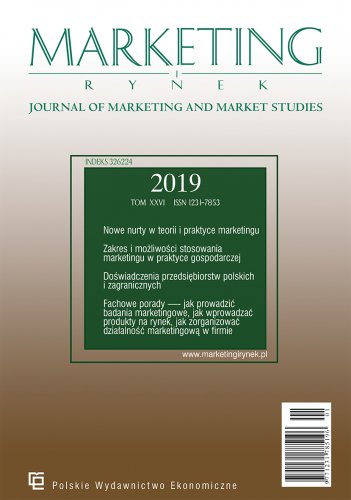Socially responsible actions towards human capital
An organisation is a component of a complex system and the way it operates strongly influences both its external and internal environment. Nowadays, one can observe an increase in CSR activities. Making responsible decisions, also regarding its own employees results in a company being perceived as socially responsible. The management of an organisation implements rules and actions in favour of their own interests, as well as to increase and protect the wealth of the society. This article aims to present CSR as influential regarding human capital. In the conducted studies, the hypothesis was made, that CSR positively influences the growth of human capital within an organisation. The applied research method is based on the analysis of academic literature and an overview of the materials published online. During this study procedure, the authors have used a diagnostic survey with the use of a questionnaire.
References
Armstrong, M. i Taylor, S. (2016). Zarządzanie zasobami ludzkimi. Warszawa: Wolters Kluwer.
Burton, B.K. i Goldsby, M.G. (2009). The Moral Floor: A Philosophical Examination of the Connection Between Ethics and Business. Journal of Business Ethics, 91. https://doi.org/10.1007/s10551-009-0074-4
CIPD. (2013). Corporate Social Responsibility and HR's Role. London: CIPD.
Edvinsson, L. i Malone, M.S. (2001). Kapitał intelektualny (Poznaj prawdziwą wartość swego przedsiębiorstwa, odnajdując jego ukryte korzenie). Warszawa: Wyd. Naukowe PWN.
Greszta, M. (2010). Dział personalny – kluczowy sojusznik w realizacji strategii CSR. Harvard Business Review Polska, 3(85).
Husted, B.W. i Salazar, J. (2006). Taking Friedman seriously: Maximizing profits and social performance. Journal of Management Studies, 43(1), 75-91. https://doi.org/10.1111/j.1467-6486.2006.00583.x
Jabloński, A. i Jabłoński, M. (2011). Strategiczna karta wyników (Balanced Scorecard). Teoria i praktyka. Warszawa: Difin.
Kostera, M. (red.) (2008). Nowe kierunki w zarządzaniu. Warszawa: Wydawnictwa Akademickie i Profesjonalne.
Król, H. i Ludwiczyński, A. (2018). Zarządzanie zasobami ludzkimi. Tworzenie kapitału ludzkiego organizacji. Warszawa: Wyd. Naukowe PWN.
McWilliams, A., Siegal, D.S. i Wright, P.M. (2006). Corporate social responsibility: Strategic implications. Journal of Management Studies, 43(1), 1-12.
Oleksyn, T. (2017). Zarządzanie zasobami ludzkimi w organizacji. Warszawa: Wolters Kluwer.
Porter, M.E. i Kramer, M.R. (2006). Strategy and society: The link between competitive advantage and corporate social responsibility. Harvard Business Review, 84(12), 78-92.
Rubik, J. (2015). Zarządzanie kosztami pracy a wymogi CSR. Prace Naukowe Uniwersytetu Ekonomicznego we Wrocławiu, (398). https://doi.org/10.15611/pn.2015.398.39
Schultz, T.W. (1961). Investment in Human Capital. The American Economic Review, 1(2), 1-17.
Schultz, T.W. (1971). Investment in Human Capital. New York: Free Press.
Zakrzewska, L. (2013). Globalne i lokalne megatrendy w świecie kadr. Harvard Business Review Polska, (12).
Zuzek, D.K. (2018). Działania w ramach Społecznej Odpowiedzialności Biznesu wśród przedsiębiorców z sektora MSP w województwie małopolskim. Przedsiębiorczość i Zarządzanie, XIX(4), 341-352.

